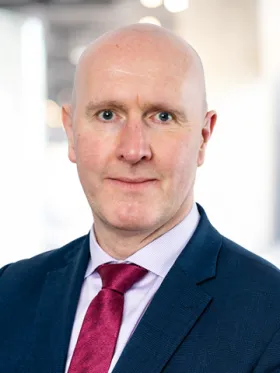Current estimates from the International Energy Agency (IEA) show energy consumption accounts for more than three-quarters of total greenhouse gas emissions globally. No surprise then that how to decarbonise energy use is a significant topic at COP28.
In this blog, I explore the vital role that digitalisation will play in delivering a just energy transition and accelerating climate action.
Decarbonisation wins are there for the taking
My read of the data is that around 30% of energy use emissions are attributable to areas that are ‘easier’ to address; or at least where no-and-low carbon solutions already exist, such as land transportation and consumption in buildings. The challenge is how we help people recognise that making the green choice is no-longer a trade-off; the choice that’s right for the planet and the choice that’s right for the individual has become the same thing. These opportunities to accelerate the decarbonisation of energy consumption create positive momentum on climate action whilst the work continues to develop technologies to address the ‘harder’ challenges, such as decarbonising steel production, agriculture and concrete manufacture.
However, accelerating decarbonisation of transport and buildings through electrification creates a fundamental shift in the dynamics of the entire electricity system. The growth in flexible demand (think electric vehicles and heat pumps, whose demand can, to some degree, be controlled based on needs) combined with a growth in inflexible supply (think solar and wind production at the mercy of the rotation of the Earth and of the weather) both create the challenge, and are part of the solution.
Perhaps it determined my choice of career, but my first memory is one of the power cuts that happened so regularly in the 1970s! Today though, our expectations are that, when we flick a switch, the electricity flows. The challenge of designing and operating a system that both reliably delivers electricity and meets our ever-rising expectations is complex. Not only do we need to ensure that those of us fortunate to live in the developed world continue to benefit from the reliable electricity supply we take for granted, but that those who don’t start to get access to reliable, affordable energy.
Turn on data to turn down greenhouse gas emissions
Keeping the lights on in the future electricity system will require making ever more complex decisions ever more quickly. Data will become the new currency, its investment paying dividends in terms of delivery of the visibility essential to making near-instantaneous, optimised choices about the operation of the system. However, this degree of visibility is impossible without digital technologies being intrinsic within the electricity system and access to the computing power necessary to process the data in the necessary timeframes. Given the expected quadratic growth in the complexity of the required decision-making, this could well require a cultural shift in attitudes to risk (this was identified in our insight report ‘Utility Week insight report – Paving the way to net zero’ and the courage to integrate novel digital technologies and approaches, such as quantum computing, to achieve the necessary optimisation of performance.
Data will power success. It’s the key to us all benefiting from both the energy transition and continued access to reliable energy through our, or at least our devices’, integration into the operation of the energy system. Smart meters provide the sensing system that makes visible what is happening at the edge of the system, enabling operational decisions to be taken and consumers rewarded for making the green choices; choices that align with the availability of decarbonised energy and the needs of the energy system.
I’ve drawn a distinction between our energy-consuming devices becoming integral parts of the energy system and us, as energy consumers, needing to be the ones that take action. For devices, such as heat pumps, electric vehicles and static storage to actively participate in the energy system, will take automation. This will enable us to get on with our day-to-day lives, and maybe feel that we have become part of the solution to climate change by choosing to allow our intelligent devices to participate. Combining digital technologies with advanced analytical techniques such as machine learning and artificial intelligence will help to ensure that our devices can participate fairly in the electricity system. As a result, we will all be able to benefit equitably from the decarbonisation of energy, making the energy transition a just transition.
Building an electricity ecosystem that drives decarbonisation
I believe that to navigate this complexity effectively and to accelerate the delivery of a decarbonised energy system requires a system-of-systems approach - an understanding of the entire energy ecosystem – that integrates and shares data between its multiple, dispersed and independent entities.
At CGI, we collaborate with all actors across the value chain and integrate ecosystems to deliver outcomes that drive efficiency, innovation and consumer choice. We are trusted to deliver the solutions that provide the digital backbone of some of the most critical national infrastructures, including those at the heart of the energy system. For example, we designed and operate the systems that provide secure access to the data generated by and held on Britain’s digital smart meter infrastructure on behalf of the Data Communications Company.
As COP28 unfolds, I’d welcome the opportunity to build a dialogue on how all stakeholders across the energy system can contribute to the development and delivery of new, meaningful, green choices for consumers that satisfy their energy needs. Get in touch to continue the conversation. Find out more.






